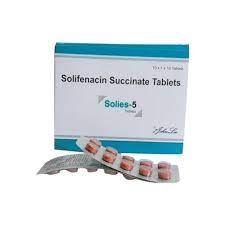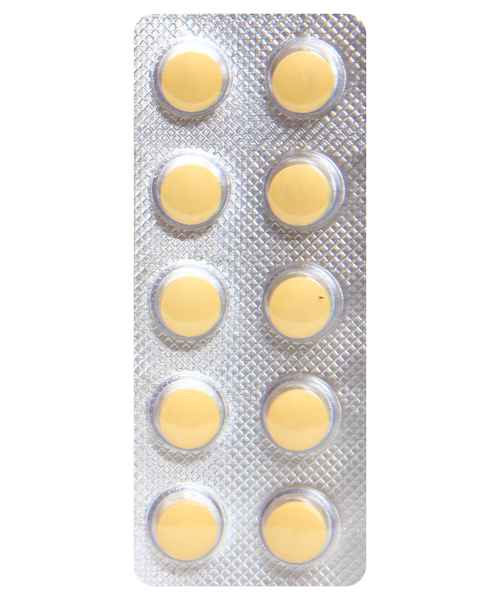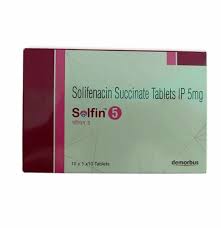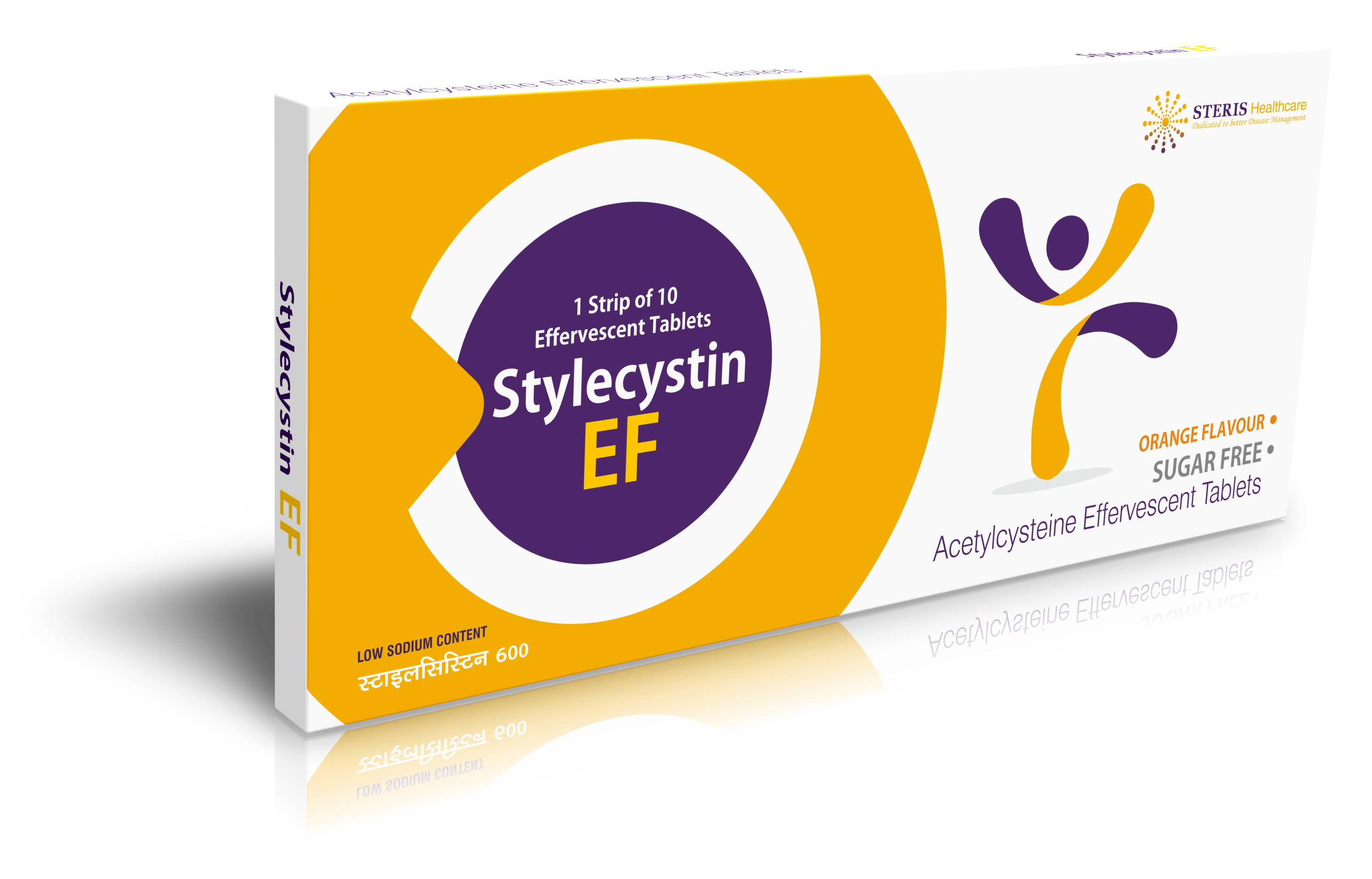solifenac SOLIFENACIN
Introduction to Solifenac
Solifenac is a medication primarily used to treat symptoms of an overactive bladder. This includes issues like frequent urination, sudden urges to urinate, and involuntary leakage of urine, also known as incontinence.
Composition of Solifenac
Solifenac contains the active ingredient Solifenacin succinate, which works by relaxing the bladder muscles to improve bladder control.
Uses of Solifenac
- Treats frequent urination
- Reduces urgency to urinate
- Helps manage urinary incontinence
Side Effects of Solifenac
Common Side Effects:
- Dry mouth
- Constipation
- Blurred vision
- Headache
- Dizziness
Serious Side Effects:
- Allergic reactions
- Difficulty urinating
- Confusion
- Increased risk of heatstroke
Precautions of Solifenac
Solifenac should be used with caution in elderly patients and those with urinary retention. It is not recommended for individuals with severe liver or kidney impairment, urinary retention, or gastric retention. Avoid use if allergic to the medication. Be cautious in hot environments due to the risk of heatstroke.
How to Take Solifenac
- Take orally, usually once daily
- Typical dosage is 5 mg, can be increased to 10 mg
- Can be taken with or without food
- Swallow the tablet whole
Conclusion of Solifenac
Solifenac is an effective medication for managing symptoms of an overactive bladder. While it offers relief from frequent urination and incontinence, it is important to be aware of potential side effects and precautions. Always consult with a healthcare provider to ensure it is safe and appropriate for your condition.


Can I take Solifenac with other prescription drugs?
Solifenac can interact with other medications, increasing the risk of side effects. Major interactions include drugs that affect liver enzymes, which can alter Solifenac levels in your body. Moderate interactions include other anticholinergic drugs, which can increase side effects like dry mouth and constipation. Always inform your doctor about all medications you're taking to avoid interactions. Your doctor can adjust your treatment plan to ensure it's safe and effective.

Can Solifenac be taken safely while breastfeeding?
The safety of Solifenac while breastfeeding is not well-established. It's unclear if this medication passes into breast milk or affects milk supply. Due to limited information, it's best to consult your doctor before using Solifenac while breastfeeding. Your doctor can help determine the safest treatment options for you and your baby. If you're taking Solifenac and want to breastfeed, discuss potential risks and benefits with your healthcare provider to make an informed decision.

Can Solifenac be taken safely while pregnant?
The safety of Solifenac during pregnancy is not well-established. Limited evidence makes it difficult to provide definitive advice. Animal studies suggest potential risks, but human data is lacking. If you're pregnant or planning to become pregnant, talk with your doctor about the safest way to manage your condition. Your doctor can help create a treatment plan that protects both you and your baby. Always consult your healthcare provider before starting or continuing Solifenac during pregnancy.

Does Solifenac affect appetite?
Solifenac doesn't typically affect your appetite. Most people taking this medication don't notice changes in how hungry they feel or how much they want to eat. If you notice any unexpected changes in your appetite after starting Solifenac, talk with your doctor about these changes. For mild appetite changes, try maintaining regular meal times and eating a balanced diet while taking your medication. Your doctor can help determine if any appetite changes you experience are related to Solifenac or if there might be another cause.

Does Solifenac affect mood?
Solifenac doesn't typically cause mood changes. Most people take this medication without experiencing anxiety or agitation. Mental health side effects are not common with Solifenac. If you notice changes in your mood or mental well-being after starting this medication, talk with your doctor. These symptoms might be related to something else, like stress or another health condition. Your doctor can help determine what's causing any mental health changes you experience and suggest appropriate support while continuing your treatment.

Does Solifenac affect sleep?
Solifenac doesn't typically cause sleep problems. Most people take this medication without experiencing any changes in their sleep patterns. Sleep disturbances aren't listed as a known side effect of Solifenac in the medication information. If you notice changes in how well you sleep after starting this medication, talk with your doctor. Sleep problems might be related to something else, like another medication you're taking or a different health condition. Your doctor can help figure out what's causing your sleep issues and suggest ways to improve your rest while continuing your treatment.

Does Solifenac cause headaches?
Headaches are not a common side effect of Solifenac. Most people take this medication without experiencing headaches. If you do get mild headaches while taking Solifenac, staying well-hydrated and resting may help. You can also take over-the-counter pain relievers after checking with your doctor. For severe or persistent headaches that develop after starting this medication, talk with your healthcare provider. Your doctor can help determine if your headaches might be related to Solifenac or if they have another cause that needs attention.

Does Solifenac cause stomach upset?
Solifenac can cause stomach upset, including nausea and abdominal pain, but these effects are rare. If you experience mild stomach upset, taking the medication with food might help reduce discomfort. Most people take Solifenac without having any stomach issues. However, if you develop severe or persistent nausea or any other concerning stomach problems, talk with your doctor. They can help determine if these symptoms are related to Solifenac or if they might be caused by something else.

Does Solifenac cause weight gain?
Solifenac doesn't typically affect body weight. Most people taking this medication don't notice changes in their weight. If you experience unexpected weight changes while taking Solifenac, talk with your doctor. They can help determine if the medication is related to these changes or if there might be another cause. Maintaining a balanced diet and regular physical activity can help manage your weight while taking any medication.

Does Solifenac have adverse effects?
Adverse effects are unwanted reactions to a medication. Solifenac can cause dry mouth, constipation, and blurred vision, which are common side effects. Serious adverse effects include urinary retention, which is difficulty urinating, and severe allergic reactions, which require immediate medical attention. If you experience any new or worsening symptoms, contact your doctor. They can help determine if these symptoms are related to Solifenac and suggest appropriate actions to manage them.

Does Solifenac have any safety warnings?
Yes, Solifenac has important safety warnings. It can cause urinary retention, which is difficulty in urinating, and should be used cautiously in people with bladder obstruction. It may also cause blurred vision and drowsiness, affecting your ability to drive or operate machinery. Not adhering to these warnings can lead to serious complications. Always follow your doctor's advice and report any unusual symptoms immediately. Regular monitoring by your healthcare provider is essential to ensure safe use of Solifenac.

Does Solifenac interfere with sexual function?
Solifenac may interfere with sexual function. Some people experience sexual health side effects like erectile dysfunction or loss of libido, which is a reduced interest in sexual activity. These side effects are considered rare. If you notice changes in your sexual function while taking Solifenac, talk with your doctor. They can help determine if the medication is the cause and suggest ways to manage these effects. It's important to address any concerns with your healthcare provider to ensure your treatment plan is effective and comfortable for you.

Does Solifenac limit driving?
Solifenac might affect your ability to drive safely. It can cause dizziness, drowsiness, or blurred vision, which may impair your driving. If you experience these symptoms, avoid driving until you know how Solifenac affects you. When you first start this medication, pay attention to how your body responds before getting behind the wheel. Talk with your doctor about any concerns you have about driving while taking Solifenac, especially if you notice any unusual symptoms.

Does Solifenac make it hard to think or concentrate?
Solifenac can occasionally cause cognitive side effects like difficulty concentrating or thinking. These effects are rare and usually mild. If you notice problems with your thinking after starting Solifenac, talk with your doctor. These symptoms might be related to something else, such as dehydration or another health condition. Your doctor can help determine what's causing these issues and suggest solutions while keeping your treatment plan on track. Don't stop taking Solifenac without talking to your doctor first.

Does Solifenac make people tired or drowsy?
Solifenac can cause drowsiness or fatigue in some people, but these side effects are not common. If you notice you're feeling very sleepy or fatigued while taking Solifenac, talk with your doctor. Your tiredness might be caused by something else, like another medication you're taking, or an underlying health condition. Your doctor can help determine what's causing your symptoms and recommend appropriate adjustments to your treatment plan. Proper rest and a balanced diet can help maintain your energy levels.

For how long do I take Solifenac?
Solifenac is usually a long-term medication for managing overactive bladder symptoms. You'll typically take Solifenac every day as a lifelong treatment unless your doctor suggests otherwise. Stopping this medication without medical advice could cause your symptoms to return or worsen. How long you'll need this medication depends on your body's response, any side effects you experience, and changes in your overall health. Always talk with your doctor before changing or stopping your Solifenac treatment.

How does Solifenac work?
Solifenac works by blocking certain receptors in the bladder, which reduces muscle contractions and helps control urination. Think of it like turning down the volume on a radio. By reducing the "volume" of bladder signals, Solifenac helps decrease the urgency and frequency of urination. This medication is effective for people with overactive bladder symptoms, which include frequent urination, urgency, and incontinence. Always follow your doctor's instructions to achieve the best results with Solifenac.

How do I dispose of Solifenac?
To dispose of Solifenac, take unused medicines to a drug take-back program or collection site at a pharmacy or hospital. They will dispose of this medicine properly so it doesn't harm people or the environment. If you can't find a take-back program, you can throw most medicines in the trash at home. But first, take them out of their original containers, mix them with something undesirable like used coffee grounds, seal the mixture in a plastic bag, and throw it away.

How do I know if Solifenac is working?
Solifenac is used to treat overactive bladder symptoms, which include frequent urination, urgency, and incontinence. You'll know Solifenac is working when you notice a reduction in these symptoms. You might find you need to urinate less often and have better control over your bladder. Regular check-ups with your doctor are important to monitor your progress and adjust your treatment if needed. Your doctor may also use questionnaires to assess your symptom improvement.

How do I take Solifenac?
Take Solifenac once daily, usually in the morning. You can take it with or without food. Swallow the tablet whole; do not crush or chew it. If you miss a dose, take it as soon as you remember unless it's almost time for your next dose. In that case, skip the missed dose and continue with your regular schedule. Do not take two doses at once. Avoid alcohol while taking Solifenac, as it can increase side effects. Always follow your doctor's specific instructions regarding diet and fluid intake while on this medication.

How long does it take for Solifenac to start working?
Solifenac starts working within a few hours of taking it, but it may take several weeks to achieve its full therapeutic effect. You might notice some improvement in your overactive bladder symptoms, which include frequent urination and urgency, within the first week. However, the full benefits may take up to 12 weeks to appear. Individual factors like age, kidney function, and overall health can affect how quickly Solifenac works. Take it exactly as prescribed for the best results.

How should I store Solifenac?
Store Solifenac at room temperature, away from moisture and light. Keep it in a tightly closed container to protect it from damage. Avoid storing it in humid places like bathrooms, where moisture in the air could affect how well the medication works. Always store Solifenac out of children's reach to prevent accidental swallowing. Remember to check the expiration date regularly and properly dispose of any unused or expired medication.

Is it safe to drink alcohol while taking Solifenac?
It's best to avoid alcohol while taking Solifenac. Alcohol can increase the risk of side effects like dizziness and drowsiness, which may impair your ability to perform tasks that require alertness. Drinking alcohol can also worsen the dry mouth side effect of Solifenac. If you choose to drink occasionally, limit your alcohol intake and be cautious of any symptoms that may arise. Talk with your doctor about alcohol use while taking Solifenac for personalized advice.

Is it safe to drink coffee or tea while taking Solifenac?
You can drink coffee and tea while taking Solifenac, but be cautious. Caffeine, which is found in these beverages, can increase urination and may counteract the effects of Solifenac, which is used to treat overactive bladder symptoms. Try to enjoy caffeinated drinks in moderation and make sure you drink plenty of water throughout the day. If you notice increased urination or other symptoms, talk with your doctor for personalized advice.

Is it safe to exercise while taking Solifenac?
You can exercise while taking Solifenac, but be aware of potential side effects. Solifenac can cause dizziness or blurred vision, which might affect your ability to exercise safely. If you experience these symptoms, avoid strenuous activities or high-impact sports. To exercise safely, stay hydrated and listen to your body. If you notice any unusual symptoms during physical activity, slow down or stop and rest. Consult your doctor if you have concerns about exercising while on Solifenac.

Is it safe to stop Solifenac?
It's important to talk with your doctor before stopping Solifenac. This medication is usually used for long-term management of overactive bladder symptoms. Stopping it suddenly may cause your symptoms to return or worsen. Your doctor can guide you on how to safely stop the medication if needed, possibly by gradually reducing the dose. Always follow your healthcare provider's advice to ensure your condition remains well-managed.

Is Solifenac addictive?
Solifenac is not addictive or habit-forming. This medication doesn't cause dependency or withdrawal symptoms when you stop taking it. Solifenac works by relaxing bladder muscles to help control urination. This mechanism doesn't affect brain chemistry in ways that could lead to addiction. You won't experience cravings for this medication or feel compelled to take more than prescribed. If you have concerns about medication dependence, you can feel confident that Solifenac doesn't carry this risk while managing your health condition.

Is Solifenac effective?
Solifenac is effective for treating overactive bladder symptoms, which include frequent urination, urgency, and incontinence. Clinical studies show that Solifenac significantly reduces these symptoms, improving quality of life for many patients. It works by relaxing the bladder muscles, which helps control urination. Most people notice an improvement in their symptoms within a few weeks of starting the medication. Always follow your doctor's instructions to achieve the best results with Solifenac.

Is Solifenac safe for the elderly?
Elderly individuals are more vulnerable to the safety risks of medications like Solifenac. They may experience side effects such as dry mouth, constipation, and urinary retention more frequently. Solifenac can also cause confusion or dizziness, which may increase the risk of falls. It's important for elderly patients to be closely monitored by their healthcare provider while taking Solifenac. Regular check-ups can help ensure the medication is safe and effective for their specific health needs.

What are Solifenac possible harms and risks?
Common Side Effects: Dry mouth, constipation, blurred vision, headache, dizziness.
Significant Adverse Effects: Severe allergic reactions, difficulty urinating, confusion (especially in older adults), heatstroke risk.
Contact a healthcare provider if severe effects occur.

What are the most common side effects of Solifenac?
Side effects are unwanted reactions that can happen when taking a medication. Common side effects of Solifenac include dry mouth, constipation, and blurred vision. These effects vary from person to person. If you notice new symptoms after starting Solifenac, they might be temporary or unrelated to the medication. Talk with your doctor before stopping any medication. They can help determine if the side effects are related to Solifenac and suggest ways to manage them.

What disease or symptom is Solifenac used for?
Solifenac is used to treat overactive bladder symptoms, which include frequent urination, urgency, and incontinence. It helps by relaxing the bladder muscles, which reduces the urge to urinate and increases bladder capacity. Solifenac is typically used alone but can be combined with other therapies for better symptom control. Always follow your doctor's instructions when taking Solifenac to ensure the best results for managing your bladder symptoms.

What is Solifenac?
Solifenac is a medication used to treat overactive bladder symptoms, which include frequent urination, urgency, and incontinence. It belongs to a class of drugs called anticholinergics, which work by relaxing the bladder muscles to help control urination. Solifenac is usually taken once daily and can be used alone or with other therapies to manage bladder symptoms. Always follow your doctor's instructions when taking Solifenac to ensure the best results.

What is the usual dose of Solifenac?
The usual starting dose of Solifenac for adults is 5 mg once daily. Your doctor may increase the dose to 10 mg daily if needed and if you tolerate the starting dose well. Solifenac is not typically used in children. Elderly patients or those with kidney or liver problems may require dose adjustments. Always follow your doctor's specific dosing instructions for your personal health needs. Do not change your dose without consulting your healthcare provider.

Who should avoid taking Solifenac?
Do not take Solifenac if you have urinary retention, which is difficulty urinating, or severe liver disease. These are absolute contraindications due to severe risks. Use caution if you have glaucoma, which is increased pressure in the eye, or gastrointestinal obstruction, which is a blockage in the digestive tract. These are relative contraindications where benefits must outweigh risks. Always consult your doctor about your medical history before starting Solifenac.
Available in 2 variations

strip of 15 tablets

strip of 10 tablets

















.svg)
